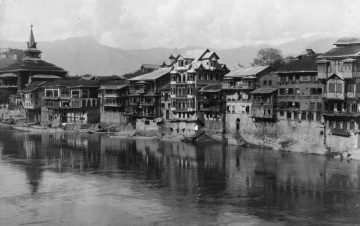Swaran Singh in Spiked:
 Iftikhar was my favourite taxi driver while I lived in London. An elderly Muslim from Lahore, he spoke in lilting, lyrical Punjabi typical of that part of the world. In June 1999, as India and Pakistan fought the Kargil war, he was driving me to Heathrow when the conversation turned to the conflict. I asked what he thought. ‘Doctor sahib‘, he said, ‘when my mother had me, she was suffering from tuberculosis. She was weak and her milk had dried up. Her nextdoor neighbour was a Sikh woman who had also given birth. My mother asked her to breastfeed me. When you ask me about the war, what can I say? I was born of one mother’s womb; another mother suckled me. How can I choose?’
Iftikhar was my favourite taxi driver while I lived in London. An elderly Muslim from Lahore, he spoke in lilting, lyrical Punjabi typical of that part of the world. In June 1999, as India and Pakistan fought the Kargil war, he was driving me to Heathrow when the conversation turned to the conflict. I asked what he thought. ‘Doctor sahib‘, he said, ‘when my mother had me, she was suffering from tuberculosis. She was weak and her milk had dried up. Her nextdoor neighbour was a Sikh woman who had also given birth. My mother asked her to breastfeed me. When you ask me about the war, what can I say? I was born of one mother’s womb; another mother suckled me. How can I choose?’
I thought of Iftikhar as India and Pakistan are again on the brink. On 5 August 2019, Amit Shah, India’s home affairs minister, announcedin the upper house of the Indian parliament (Rajya Sabha) that a presidential order had been issued revoking Article 370, depriving the state of Jammu and Kashmir of its special status that conferred on it a certain level of autonomy, and fundamentally changing the relationship between India and Kashmir.
The immediate and long-term consequences of this Indian move will be far-reaching, and may be very damaging. No one can foresee the outcome and many will rightly be trepidatious. But at this critical juncture, it is important to realise the complexity of the Indian-Pakistani conflict over Kashmir, and its varied victims. Much of the media portrayal of the conflict is one between a Hindu nationalist India and the Muslim population of Kashmir. This is only partly true.
More here.
